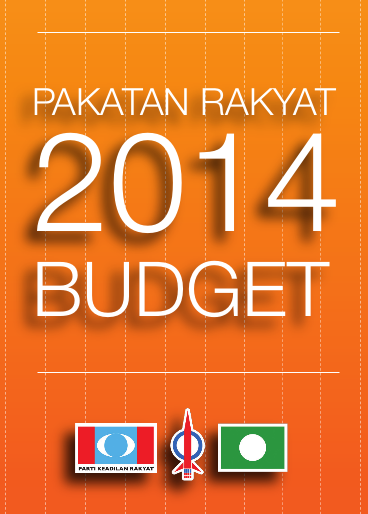Paul Low offers half-baked reforms thus inadvertently perpetuate the corruption culture in BN
I refer to the response given by "Integrity Minister" Paul Low to my question in Parliament on 11 July 2013.
My question was:
Sim Chee Keong [Bukit Mertajam] minta Perdana Menteri menyatakan sama ada kerajaan akan melaksanakan 22 saranan Transparency International-Malaysia (TI-M) dalam memorandum Reform of Political Financing in Malaysia oleh TI-M. Jika ya, bila dan jika tidak, mengapa.
Low again played the role of government apologist by saying 8 out of the 22 recommendations were alreadyimplemented either partially or fully. These are:
reform of Election Commission to enhance its independence
make it mandatory for election expenses of political parties and candidates to be independently audited by certified auditors before submission to the EC
prevent organisations linked to political parties from being used as conduit for political financing
prohibit political parties from receiving foreign donations
impose an expenditure limit on the electoral activities of political parties
include all shareholders in company decisions for political contributions
repeal the Printing Presses and Publication Act 1984
allow equal and free access to the public media for all interest groups under the Political Parties Act.
The Minister also said that the rest of the 22 recommendations are now being studied.
There are three problems to the Minister's response:
Firstly the Minister has not mentioned the extend of the reforms. It seems that these at best are half-baked measures. For example, the so-called reform of EC cannot be completed if the tainted chairman and vice chairman are not removed. Another example is the limit on expenditure on political parties. Currently the limit is imposed on candidates not on parties, and even then there is no proper mechanism to ensure transparency in spending. And yet another example, when mainstream media are still owned by political parties and controlled by the government, thus there is no free and fair access to the media for all parties.
Secondly, what is important is the fundamental which TI-M outlined when they made the recommendations; "to enhance the transparency of election campaign financing as well as political party activities in non election years". And for the sake of context, the concerns raised in the course of the said study are:
a) the poor regulatory regime of political financing;
b) an uneven playing field during federal and state elections as some parties have more access to funds and others, which undermines fair electoral competition;
c) allegation of covert fundings of politicians which can lead to influence peddling and the abuse of government resources
d) serious factionalism that is not based on differing ideological or political viewpoints but on who among political leaders have the greatest capacity to distribute funds to capture grassroots support.
Thus the half-baked reforms not only fail to address these problems but legitimise abuses at the expense of opposition and smaller parties. For example the half-baked reform on the limit of election expenditure; currently opposition candidates are limited both by financial capacity and by election laws in their spending while ruling party seems to have deep pocket during campaign in support of its candidates. Recently, Pakatan Rakyat even exposed a Barisan Nasional candidate who allegedly spent more than 10 times the allowed limit during the 13th General Election.
Finally, I do not understand why Paul Low is adamant to implement all 22 recommendations and resorted to the oft-used government tagline: "we are still studying it". The TI-M manifesto was published after more than one year of research conducted by distinguished academics and involving international and local stakeholders, including government agencies, politicians from both Pakatan Rakyat and Barisan Nasional and even former Prime Ministers such as Dr Mahathir Mohamad and Abdullah Ahmad Badawi.
The question therefore remains, why Paul Low is delaying in its implementation when he is now given the opportunity to actualise the principles of transparency he preached during his tenure as President of TI-M. We are only faced with three options for answer: either Paul Low is helpless against the entrenched corruption culture in Barisan Nasional or he is, unfortunately a hypocrite, or worse, he is both.
Earlier, I have outlined 6 critical recommendations which should be implemented without hesitation while the rest should be implemented as soon as possible:
reform of the Election Commission, which should include the removal of its current chairman and deputy to re-establish the commission's independence and integrity;
impose limits on individual and group contributions to political parties, and compel the disclosure and audit of accounts of political parties including its source of income;
impose limit on spending of political parties in elections, instead of just on individual candidates presently;
prohibit political parties from owning, directly or indirectly, and being involved in business;
introduce direct state funding for political parties;
prohibit ownership of the media by political parties to ensure level playing field.
These measures are crucial in that they set the foundation for a more thorough reform of political financing in Malaysia. They not only ensure transparency in monetary transactions for political activities but also ensure a fairer playing field for all parties whether opposition or government. Thereafter the government must provide a reasonable timeline to implement all 22 recommendations by TI-M.
